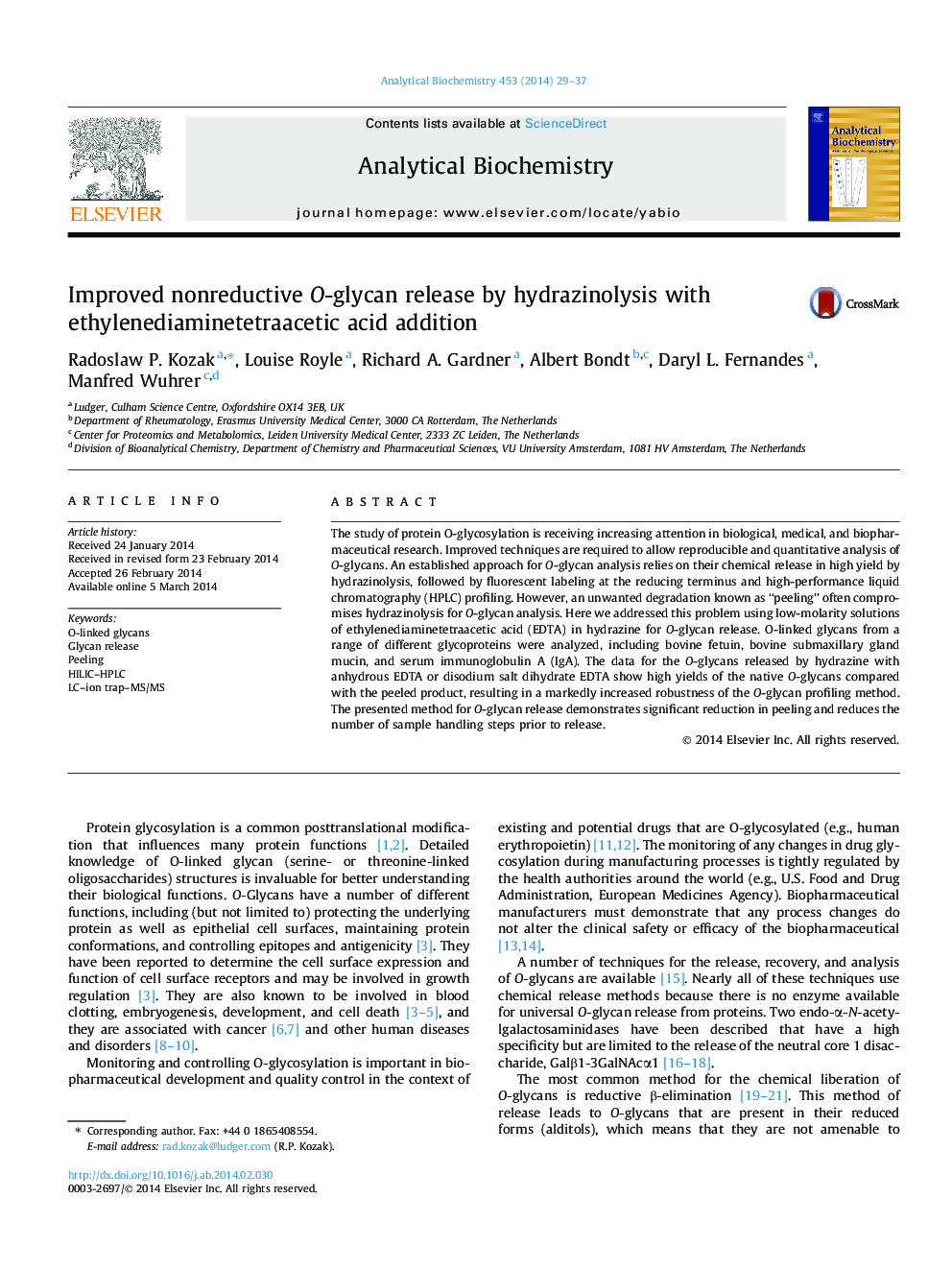| کد مقاله | کد نشریه | سال انتشار | مقاله انگلیسی | نسخه تمام متن |
|---|---|---|---|---|
| 1176092 | 1491394 | 2014 | 9 صفحه PDF | دانلود رایگان |
The study of protein O-glycosylation is receiving increasing attention in biological, medical, and biopharmaceutical research. Improved techniques are required to allow reproducible and quantitative analysis of O-glycans. An established approach for O-glycan analysis relies on their chemical release in high yield by hydrazinolysis, followed by fluorescent labeling at the reducing terminus and high-performance liquid chromatography (HPLC) profiling. However, an unwanted degradation known as “peeling” often compromises hydrazinolysis for O-glycan analysis. Here we addressed this problem using low-molarity solutions of ethylenediaminetetraacetic acid (EDTA) in hydrazine for O-glycan release. O-linked glycans from a range of different glycoproteins were analyzed, including bovine fetuin, bovine submaxillary gland mucin, and serum immunoglobulin A (IgA). The data for the O-glycans released by hydrazine with anhydrous EDTA or disodium salt dihydrate EDTA show high yields of the native O-glycans compared with the peeled product, resulting in a markedly increased robustness of the O-glycan profiling method. The presented method for O-glycan release demonstrates significant reduction in peeling and reduces the number of sample handling steps prior to release.
Journal: Analytical Biochemistry - Volume 453, 15 May 2014, Pages 29–37
